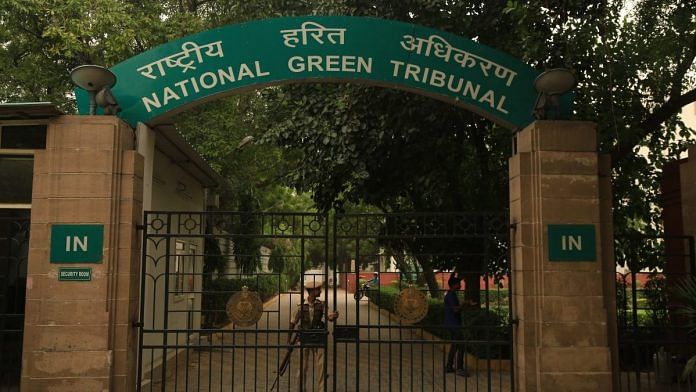The NGT ban on rat-hole mining had come on petitions that warned of the exact same scenario that left 15 miners trapped this month.
New Delhi: Sixteen days and counting. The 15 miners trapped inside an illegal rat-hole coal mine in Meghalaya on 13 December are yet to be traced, with hopes about their survival dimming by the hour.
The fact that 15 lives were imperilled in an operation ruled illegal by India’s environment court, the National Green Tribunal (NGT), four years ago has only made the tragedy strike deeper.
The NGT order, issued on 17 April 2014, came on a clutch of pleas pointing out the dangers of rat-hole mining operations in the state.
Also read: Military finally deployed 16 days after Meghalaya mine collapse
Ban on rat-hole mining
Rat-hole mines have been the primary form of mining in Meghalaya, where coal is among the biggest sources of revenue.
According to an explainer in The Indian Express, rat-hole mining of the sort being undertaken at the Meghalaya site involves digging a vertical tunnel up to 400 feet deep in search of coal seams, which are beds of the mineral thick enough to be profitably mined.
Once a coal seam is spotted, extremely narrow tunnels (hence, rat holes) are dug horizontally, which miners then enter to extract the black gold.
While ordering the ban, the NGT had condemned the practice, saying “such illegal activities are to be put to an end”.
Despite the fact that the pleas were restricted to rat-hole mining operations in Jaintia Hills, the NGT had ordered a statewide ban “… in the interest of people of the area and also people working in the mines for their safety as also for the protection of environment”.
“… We direct the chief secretary, government of Meghalaya, and the director general of police, state of Meghalaya, to ensure that rat-hole mining/illegal mining is stopped forthwith throughout the state of Meghalaya and any illegal transport of coal shall not take place until further orders passed by this tribunal,” the bench said.
One of the petitions moved before the NGT had warned of the exact scenario that played out at Ksan, Meghalaya, on 13 December, where water from the river Lytien, which flows nearby, flooded the vertical shaft and cut off the miners from their sole exit.
The plea sought to inform the green tribunal that “there are umpteen number of cases where by virtue of rat-hole mining, during the rainy season, water flooded into the mining areas resulting in death of many number of individuals including employees/workers”.
The bench also took note of a report prepared by Dr O.P. Singh, a professor of environment studies at North-Eastern Hill University in Shillong that had flagged the prevalence of “primitive” rat-hole mining in Meghalaya and stated that the “mining activity in Jaintia Hills is a small-scale venture controlled by individuals who own the land…”
“A reading of the said scientific study… shows an alarming situation existing in the state of Meghalaya, especially in the Jaintia Hills, wherein the rat-hole mining has been in practice for a long time,” the bench said.
“We are of the considered view that such [an] illegal and unscientific method can never be allowed, in the interest of maintaining ecological balance of the country and safety of the employees,” it added.
“It is also brought to the notice this tribunal that by such illegal mining of coal, neither the government nor the people of the country are benefited,” the NGT said, “It is only the coal mafia who are getting benefit by following this sort of illegal activities.”



